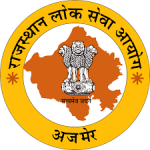TOPIC: Linkages between development and spread of extremism; Role of external state and non-state actors in creating challenges to internal security; Security challenges and their management in border areas; linkages of organized crime with terrorism
History
- The CCIT was proposed by India in 1996 but has not yet been adopted by the United Nations General Assembly (UNGA).
- PM Narendra Modi gave a speech at the 69th session of the UNGA in 2014, asking for cooperation of all the countries in the region to combat terrorism in West Asia.
- He mentioned that some countries use terrorism as their state policy and provide safe haven to terrorists.
- He called upon all the countries to put aside their differences and adopt the CCIT.
- The proposed convention was intended to provide umbrella cover for situations not addressed by the existing sectoral conventions on terrorism, concluded under the auspices of the UN. The CCIT is described as the mother of all anti-terrorism conventions.
Latest development
- In the wake of the Dhaka terror attacks, its demand for the adoption of the convention has been revived.
- It wants the convention to be adopted in the 71st session of the UNGA itself i.e. September, 2016.
Importance of CCIT
- CCIT intends to criminalize all forms of international terrorism.
- It is a legal framework which would make it binding for all countries to cut off funds and deny arms and safe haven to terrorist organizations.
- It calls for agreement on a universal definition of terrorism which all the 193 members of the UNGA will have to adopt into their domestic criminal laws. It wants to do away with the distinction between ‘good terrorists’ and ‘bad terrorists’.
- To ban all terrorist groups irrespective of their objectives or country of operation.
- To prosecute all terrorists including cross-border groups under special laws.
- To amend domestic laws to make cross-border terrorism an extraditable offence.
Also read: Indian Government’s Initiatives for overseas Indians
Opposition to CCIT
- The draft has been deadlocked since 2012 over difference on defining terrorism and terrorists and the scope of the proposed convention.
- There was a deadlock on whether the convention would be applicable on armed forces of a state and to self determination or freedom movements.
- Many countries brand these terror camps as ‘liberation movements’ or ‘freedom fighters’ and try to exempt those whom they favor.
- There are three blocs which have so far opposed the convention- the USA, the Organization of Islamic Cooperation(OIC) and the Latin American countries.
- The US fears that the CCIT will affect its own military interventions in Afghanistan and Iraq. But, India has made changes in the draft convention and clarifies that “the activities of armed forces during an armed conflict” will not be covered by the convention.
- Latin American countries have reservations about international humanitarian laws and human rights being ignored.
- The OIC feels that the convention will be used to target Pakistan and will restrict the rights of self determination groups in Palestine, Kashmir and elsewhere in the world.











